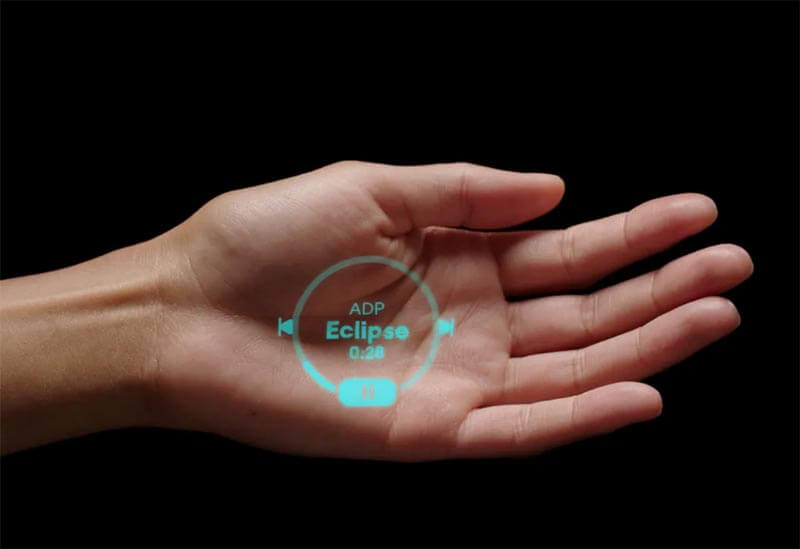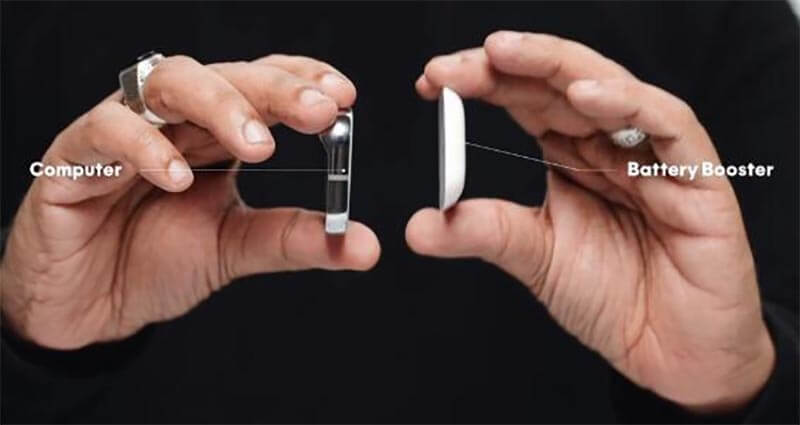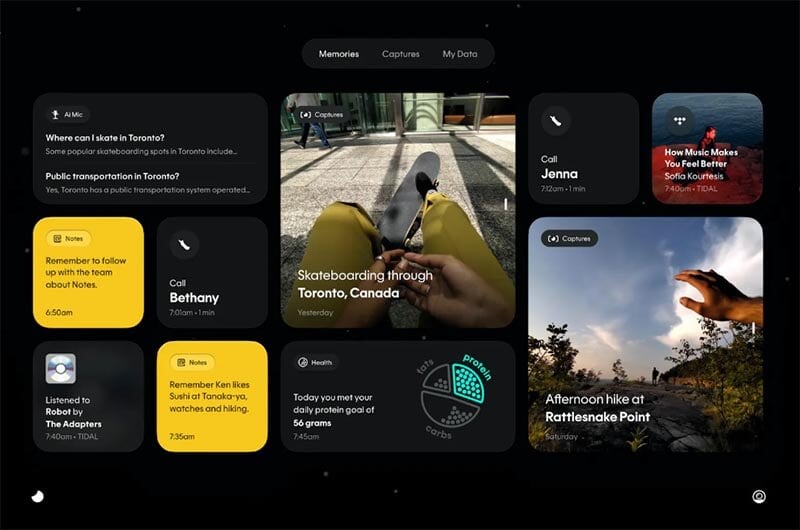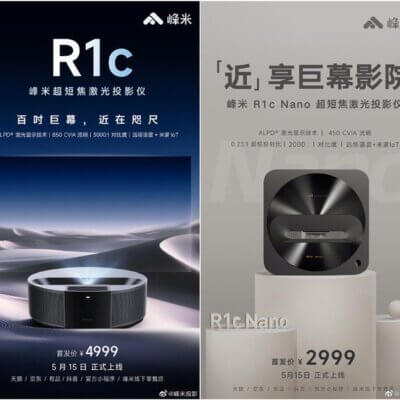Humane, a startup founded in 2018 by former Apple software engineering director Bethany Bongiorno and Apple designer Imran Chaudhri, unveiled its inaugural product, Ai Pin, on November 9. The OpenAI CEO, Altman, holds the majority stake in this innovative venture.
Ai Pin is introduced in three colors: Eclipse, Lunar, and Equinox. The latter two, adorned with silver borders, are priced $100 higher than the Eclipse version at $799.

A Novel Design with Laser Projection Interface
Ai Pin, encased in aluminum, resembles a larger-than-life lapel pin or a wristwatch face, weighing approximately 54 grams in total (the square device weighs around 36 grams, and the battery pack contributes an additional 20 grams). Imran Chaudhri, co-founder of Humane, explains that the name “Pin” is metaphorical, evoking the sense of being affixed to clothing rather than describing a physical state.
The battery life of Ai Pin is designed to last an entire day, ensuring sustained functionality.
The “Trust Light” atop Ai Pin flashes when the camera, microphone, or input sensors are in use, serving as a visual indicator for those nearby.

Revolutionary Interaction Capabilities
Ai Pin offers functionalities like capturing photos, sending/receiving texts, and making calls, challenging conventional lightweight electronic devices such as phones and tablets. Its interaction is facilitated through clicks, gestures, and voice commands, relying on laser projection to display the interface on the palm, with a resolution of 720P.
Laser projection technology is the highlight of the product, with the increasingly powerful function of generative AI, AiPin as an AI hardware carrier or will become a new breed of intelligent hardware, in which laser projector as the core increment of hardware is worthy of attention. Other products that use laser projection technology include the Dangbei Mars projector, which uses an advanced ALPD laser as a light source.

Inherent AI Hardware
Different from VR/AR headsets, Ai Pin is born with robust AI genetics, positioning itself as AI hardware. Bethany Bongiorno, co-founder of Humane, dubs Ai Pin as the world’s first contextual computer, emphasizing its role as an AI assistant with built-in AI models, primarily supported by GPT-4. Holding the Pin allows users to engage in natural language conversations, similar to interacting with ChatGPT.
The current AI functionalities of Ai Pin include voice calls, document editing, email processing, real-time translation, food recognition with nutritional information, restaurant and music recommendations. These recommendations are based on device-captured information like user photos and texts, enabling the creation of user profiles and understanding their friends and family.
Humane plans to add navigation and shopping functionalities in the future and intends to open interfaces for developers to create apps. More AI features are expected to unlock in 2024, including intelligent calorie assessments through the camera.

Enormous Computational Demands
Humane’s ultimate design philosophy for Ai Pin is to create hardware that serves as another pair of eyes and another brain for perceiving and understanding the world.
Humane has raised $230 million in funding, with a valuation of $850 million. Altman, the CEO of OpenAI, holds the largest stake at 14.93%. Investors include Microsoft, LG, SK, Qualcomm, SoftBank, and Volvo.
While Ai Pin captures attention, other competitors in the portable AI product landscape include Rewind Pendant, Tab, and Meta’s Ray-Ban. These diverse form factors cater to different preferences, with Rewind Pendant resembling a necklace pendant, Ray-Ban functioning as glasses, and Tab resembling a small rolling ball, set to debut in the winter or spring of 2024.




